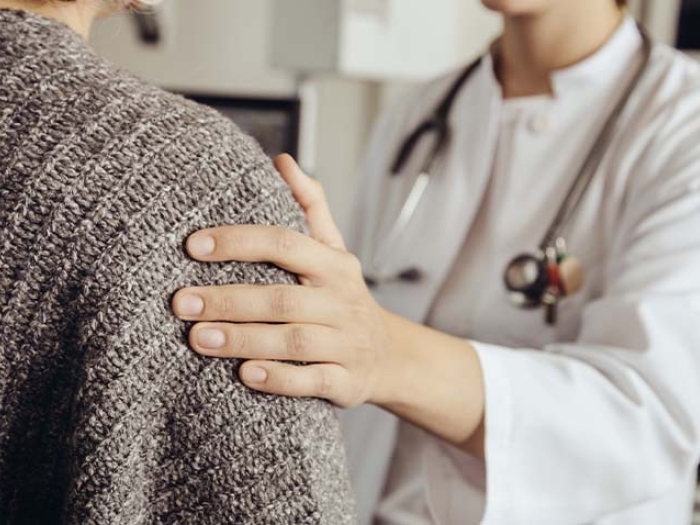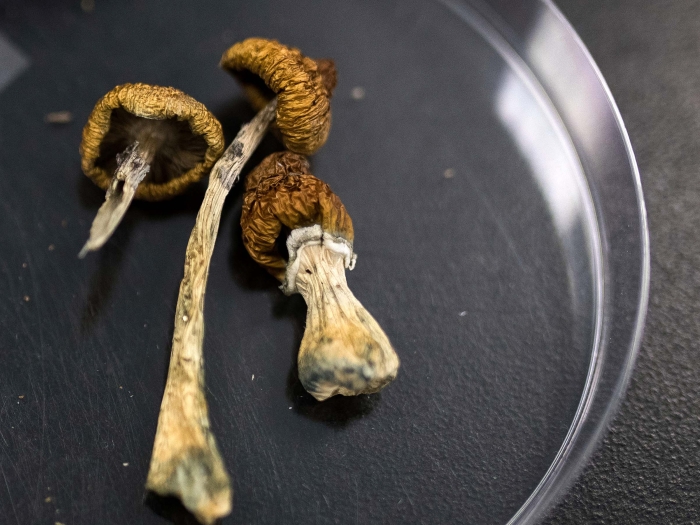Two plastic surgeons address common misconceptions about breast reconstruction surgery, and answer commonly asked questions.
3:11 PM
Author |
As many procedural options as there are for breast reconstruction surgery, there are perhaps even more misconceptions about the surgery.
Jessica Hsu, M.D., Ph.D., and Paige Myers, M.D., plastic surgeons at Michigan Medicine, have heard — and dispelled — many of them.
According to Hsu and Myers, many of the untruths include breast reconstruction being seen as simply a cosmetic procedure, or that a woman's past surgical history makes them not a good candidate for the procedure. The pair say that many of these untruths could be keeping women from pursuing surgery that could help them.
Here are six common misconceptions about breast reconstruction surgery, and the truth behind each:
1. Breast reconstruction is a cosmetic procedure.
The truth: "Clinical and patient-reported outcomes have shown it's so much more than a cosmetic procedure," says Myers. "There is a mind-body connection of restoring form and function that is fascinating."
She says several studies have proved that breast reconstruction surgery improves quality of life and psychosocial well-being in women who are interested and candidates.
2. I'm not a candidate for natural tissue breast reconstruction because I don't have enough tissue to spare.
The truth: Natural tissue breast reconstruction involves moving tissue from another part of the body—most often the patient's abdomen—and using that tissue flap to reconstruct a breast mound. The procedure is a good choice for women who want a more natural option than implant-based reconstruction.
Some women think they aren't candidates for the procedure because they are thin or don't have enough tissue in their abdomen to move to the breast region.
Hsu stresses that while the abdominal region is a common place to take tissue, surgeons can use tissue from other areas, such as the thighs or buttocks.
"There are other options," Hsu says. "We can use tissue from other places, but you wouldn't necessarily know that unless you had a consultation with a plastic surgeon at Michigan Medicine."
3. My Caesarean section or other abdominal surgery disqualifies me from abdominally-based natural tissue breast reconstruction.
The truth: Myers says some women assume that because a C-section or abdominal surgery might damage the abdominal area, they can't have natural tissue breast reconstruction using abdominal tissue.
"That's not necessarily true," she says. "Abdominal tissue can often be used despite previous surgery to the region, since many types of minor abdominal surgery spare the blood vessels that supply the skin and fat for abdominally-based breast reconstruction."
4. My breast reconstruction must be done right away, or I can't do it at all.
The truth: Women who've undergone a mastectomy for breast cancer might not want to undergo more surgery right away, and may think they have to have the surgery within a certain timeframe. Myers stresses that insurance covers breast reconstruction after mastectomy at any time in a woman's life.
"When I see these women in the clinic, I tell them that if they're not ready for it, we can always do it later," she says.
Some patients may want to have natural tissue reconstruction, but are hesitant to undergo more involved surgery after a mastectomy. Myers says those women can opt for implant-based reconstruction with a quicker recovery and revisit their options down the road.
"If they're candidates, they can have implants immediately after their mastectomy, and when it's a better time in their life, they can return for natural tissue reconstruction later," she says.
5. Because I had radiation treatment, I can't have breast reconstruction surgery.
The truth: "Patients often have misconceptions that they might not be candidates for breast reconstruction after radiation, because of the soft tissue changes that take place after radiation," Myers says.
While radiation can make certain procedures more challenging, it doesn't outright prevent options, Myers says. Generally, natural tissue reconstruction surgery, with or without implants, is the best option for patients who have had radiation.
"I reinforce with women that we have a lot of options, and we'll work together to find what works best for them individually," she says.
6. My reconstructed breast won't match the other breast.
The truth: "Patients who are undergoing mastectomy on one side worry they won't be able to match the other side that didn't have cancer, so they sometimes don't pursue breast reconstruction," Hsu says.
She says insurance coverage often includes revision to the breast not affected by mastectomy if necessary to achieve symmetry.
To Hsu, conversations about breast reconstruction procedures are more about clarifying what's possible and understanding that there are options.
"Our goal is to provide patients with all of the information they need to make the decision that is right for them," Hsu says. "It's a very personal decision, and reconstruction plans are individualized. We find that patients are the happiest when their choices align with their reconstruction goals."

Explore a variety of health care news & stories by visiting the Health Lab home page for more articles.

Department of Communication at Michigan Medicine
Want top health & research news weekly? Sign up for Health Lab’s newsletters today!





